by ASJAD NAZIR.
THE latest release from acclaimed collective Simon Thacker’s Svara-Kanti is Trikala, which is an advanced Indo-Western fusion album featuring 13 leading Indian, Bangladeshi and European artists.
The artistic masterpiece, which has taken three years to create, is a double CD with a 40-page booklet that was created and recorded in East Lothian in Scotland along with Chennai and Kolkata in India.
Simon Thacker’s latest release is a double album that creates new sound worlds using diverse Indian classical, folk and spiritual traditions.
Eastern Eye caught up with the multi-talented musician to talk about Trikala, his strong connection to Indian music, fusion and more.
Tell us when did you first get connected to Indian music?
I first listened to Hindustani classical music in early high school, and gradually discovered Carnatic, Dhrupad, folk and spiritual music. What drew me to it initially was its sheer differentness to the music I knew, and how the use of all the raw materials of music was almost the polar opposite. It moved me. I didn’t know at that time what a big part in my life it would play.
You have had a number of releases connected to Indian music including your latest album Trikala, what led you towards it?
After 2013’s Rakshasa album by Simon Thacker’s Svara-Kanti, which featured four different compositional voices and one line-up of four performers, I decided on a different approach with Trikala with one compositional voice (me) and a multitude of line-ups taking different traditions as a basis to innovate. At the outset, I always have a strong concept but find things take a life of their own. I couldn’t have envisaged a huge double album of over 138 minutes of the most advanced intercultural music ever recorded featuring 13 of the best performers from their respective traditions, but that’s what it is.
Tell us more about the album?
Trikala (the Sanskrit word for the three tenses of time - past, present and future) is my third release creating new sound worlds through my immersion in Indian classical, folk and spiritual traditions. Simon Thacker’s Svara-Kanti has metamorphosed into different line-ups, with each taking inspiration from four different aspects of the vast musical macrocosm that exists on the Indian subcontinent; Hindustani classical (north), Carnatic classical (south), Punjabi folk (west) and the Bengali mystical folk Baul tradition of both India and
Bangladesh (east).
What else is on there?
There is a major solo work with a tangential Tamil inspiration, one of Bengali polymath
Rabindranath Tagore’s best loved melodies reimagined and a moving transformation of India’s national song. It is based on a love of creating, collaborating, connecting, following your own untrodden path and dreaming.
What was the biggest challenge of putting the album together?
Well, 138 minutes is a vast amount of time to compose and create, but really, that was the easy part and pure joy. Researching and finding the best musicians for each piece was pretty tough and took a long time, but I am both delighted and privileged to work with so many great performers.
Tell us about them?
KV Gopalakrishnan (kanjira), N Guruprasad (ghatam) and Neyveli B Venkatesh (mridangam) are amazing Carnatic percussionists. Afsana Khan is, for me, the best young India-based Punjabi folk and Sufi singer; Japjit Kaur is a fantastic UK based vocalist and actress; violinist Jacqueline Shave can play anything beautifully; I’ve played with Polish
cellist Justyna Jablonska in our Karmana duo for many years and she has just embarked
on a PhD on Indian music. Sukhvinder Singh is one of the tabla world’s most distinctive virtuosos. I brought together India’s Raju Das Baul and Bangladesh’s Farida Yesmin, two of the leading singers from West and East Bengali folk spiritual Baul music. Sunayana Ghosh is a brilliant female tabla player and Sarvar Sabri (tabla) has a rare musical understanding, having been part of Rakshasa and my first Indian group, Nava Rasa Ensemble from 2009. Logistics weren’t easy, but the music and performances are a dream come true.
How does this compare to your previous work?
Trikala is a natural next step. I see music as a lifelong journey. You discover more about yourself, about music, about life and all of these nourish each other. It is certainly an album on the grandest scale, both in terms of personnel and the fact that it is a double album. I do take a step back sometimes from my often excessive self-criticism and go, “wow, did that come out of my head?”
Is there any one song that is closest to your heart?
I can honestly say that every track is straight from the heart and has an equal distance.
Beyond Mara is the biggest piece I’ve ever composed at over 19 minutes alone. My solo version of Vande Mataram brings a totally new perspective to it. The Punjabi folk tracks basically ignore the previous 30 years of Punjabi music history and offer a vision of where I think Punjabi folk should have gone. The second CD is a radical transformation of Bengali Baul music, with songs by Lalon, Radharaman, Tagore and others, and these melodies are truly a gift. Whether in the original works or re-imaginings, each piece has changed me, enriched me and given me a new understanding about the power of music.
Who are you hoping Trikala connects with?
Everyone. I’ve been lucky that I have toured India, Pakistan and Bangladesh, so have experienced firsthand the incredibly humbling beautiful reactions to my compositions and often radical transformations of music from each of these places. I do hope that a Hindustani, Carnatic, Punjabi folk or Baul music fan would listen to Trikala and feel these are directions the music wanted to go. I also hope listeners with no experience whatsoever with any of these forms will enjoy Trikala immediately, as the music comes from a place, in terms of energy and emotion, that makes it universal.
Tell us the secret of creating a great fusion track?
I do not see my music as fusion, any more than Baroque master JS Bach, Carnatic pioneer Tyagaraja or Baul saint Lalon Fakir were fusion. This is not to compare my music with these greats, but to point out that all music is an amalgam of influences and inspiration. Musical evolution need not and should not result in dilution or compromise, and that homogenisation is not inevitable. Quite the opposite, as I hope Trikala demonstrates. I do think the secret of the artistic success of my intercultural work is my spiritual connection with the music.
Tell us about the booklet accompanying the album Trikala?
The 40-page booklet, beautifully illustrated by Edinburgh’s Sam Hayles, features extensive liner notes on all the pieces with lots of fantastic photos of all the line-ups.
What music dominates your own play list?
It changes constantly. I find myself going between old and new and need the inspiration of both. It also depends what I’m working on. So if I’m working on a Punjabi song, I’ll listen to Surinder and Parkash Kaur, Kuldip Manak and so on. If it is Carnatic, it might be Gayathri Venkataraghavan or Umayalpuram K Sivaraman. I do like a bit of nasty guitar riffage, Rage Against The Machine for example, at regular intervals too. I’m currently working on a Romani album, so I am listening to loads of Romanian and Balkan Roma music.
How much has performing music live shaped you as a musician?
The connection to an audience is everything, so it has guided me my whole career. Whether I’m playing to 60,000 in a stadium in Dhaka or 100 people in a village hall in the Highlands, I always learn and get a different perspective.
Will you be taking the album on to the live stage?
I’ll be promoting Trikala in India in December, so am performing there. In the UK, we’ll be touring next year. I hope I can get as many of the amazing performers who are part of Trikala to the UK for a tour as possible. Internationally, you’ll see big developments for Svara-Kanti, so watch this space.
What can we expect next from you?
There is actually an album’s worth of Trikala videos recorded in UK and India, so expect lots of fantastic YouTube and social media musical outpourings. I’m very excited to have so many visual releases to go with the album, which really get at the essence of what each Svara-Kanti line-up has created. I, somehow, managed to record an album in August with another of my groups, Simon Thacker’s Ritmata, so that will come out in February, with
the Songs Of The Roma album coming in Spring.
What inspires you as a musician?
As I get older, I find that more non musical inspirations come into my vision; whether it be visual art, dance or observing the natural world, how things connect, how elements alter perceptions, different layers of a field of vision and so on. I live in the country and find that walking to a nearby river and just observing opens my perceptions. Any performer who goes beyond style, technique or genre and taps into the well of shared emotion and energy inspires me.
Why do you love music?
For me, music is like eating or breathing. It’s a basic element of my existence and survival. It is me. Beyond that, I can’t really explain it.
Why should we pick up the album Trikala?
If you love music with cosmic levels of energy that is honest, played by great performers,
who effortlessly reposition the extremities of what has been done, playing music by someone who has spent a lifetime developing, experimenting and honing to produce a
defining statement on the possibilities of intercultural collaboration - then Trikala is for you.
- Trikala by Simon Thacker’s Svara-Kanti is out now. Visit www.simonthacker.com to find
out more.





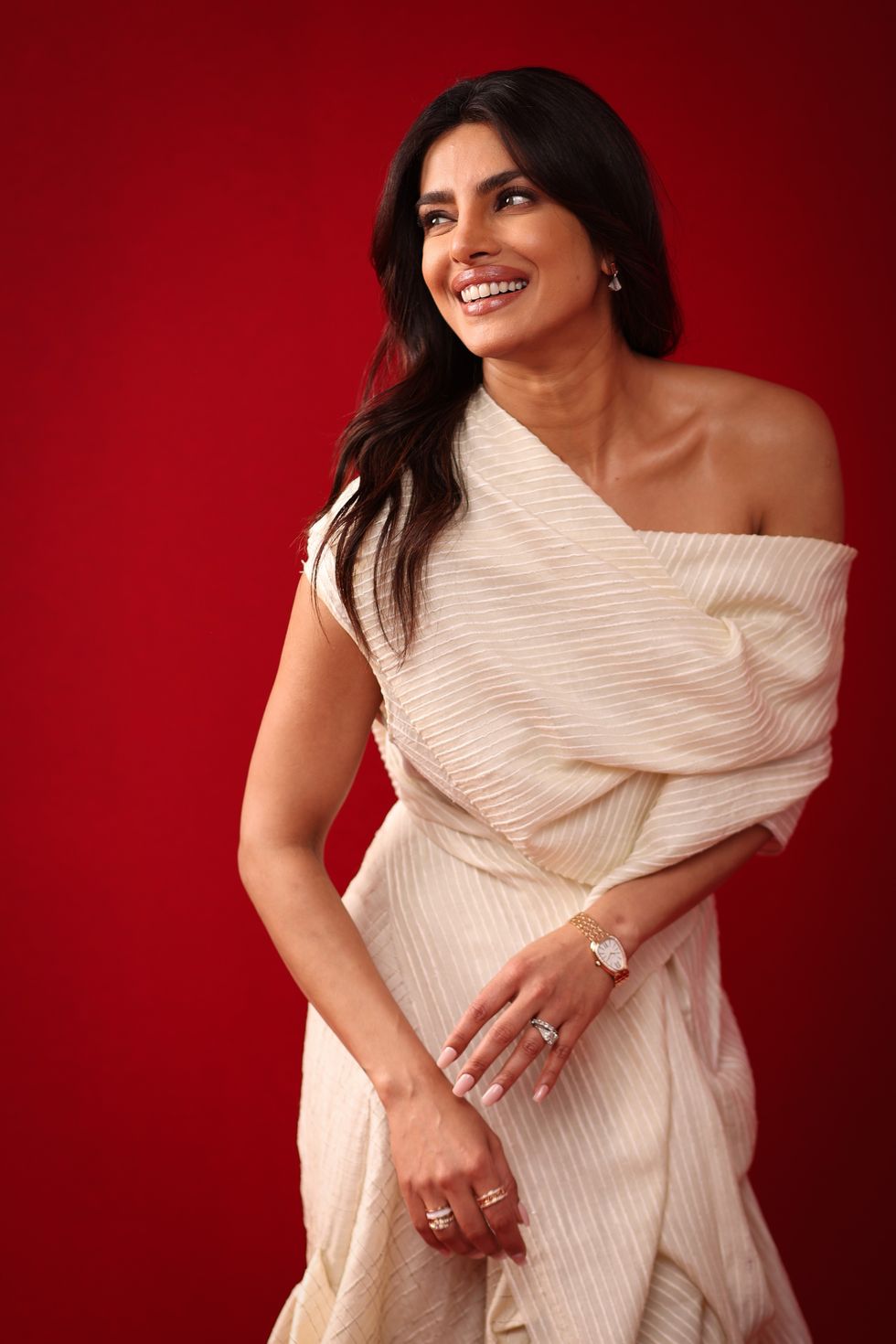 Priyanka Chopra calls herself nascent in Hollywood as 'Heads of State' streams on Prime VideoGetty Images
Priyanka Chopra calls herself nascent in Hollywood as 'Heads of State' streams on Prime VideoGetty Images 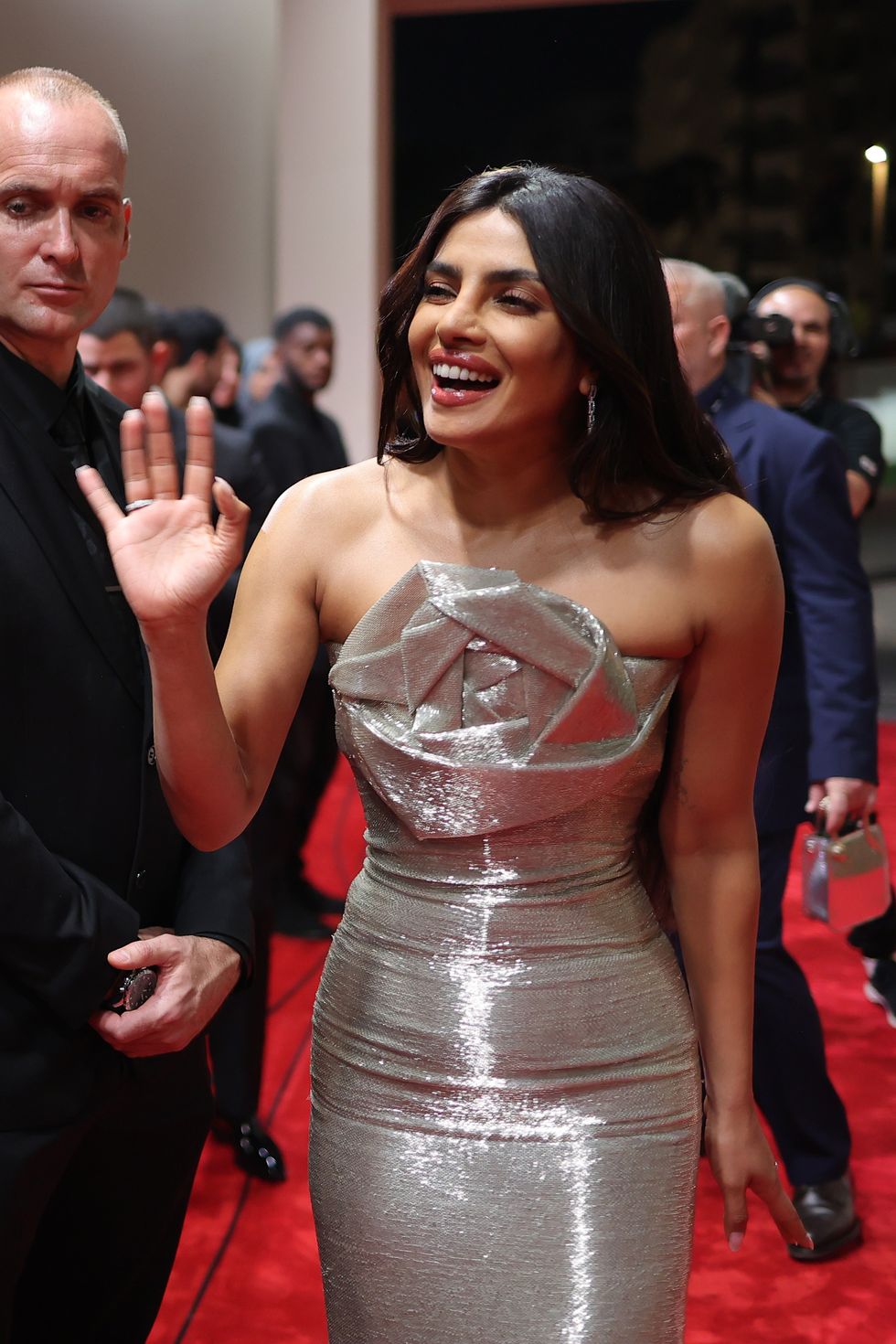 Priyanka Chopra wants to build her English film portfolio after Bollywood successGetty Images
Priyanka Chopra wants to build her English film portfolio after Bollywood successGetty Images 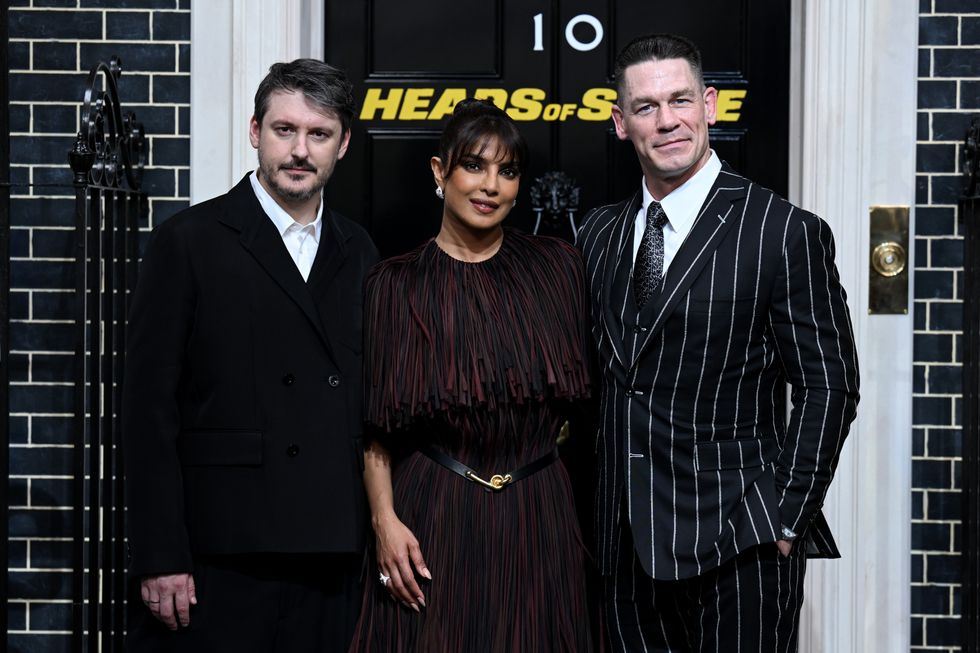 Ilya Naishuller, Priyanka Chopra and John Cena attend the special screening for "Head of State" Getty Images
Ilya Naishuller, Priyanka Chopra and John Cena attend the special screening for "Head of State" Getty Images








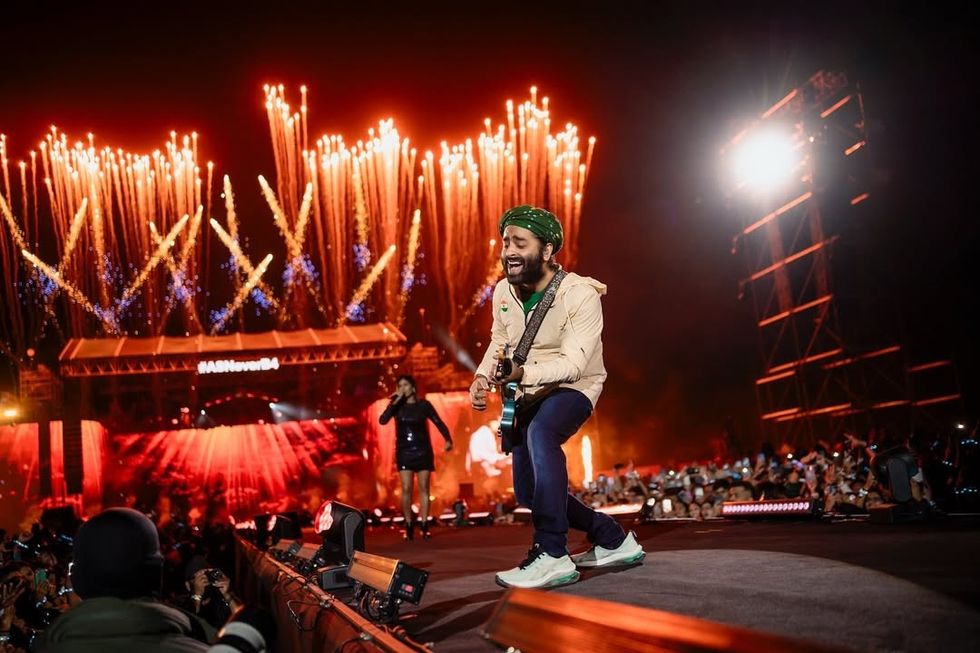 Arijit Singh performing Instagram/
Arijit Singh performing Instagram/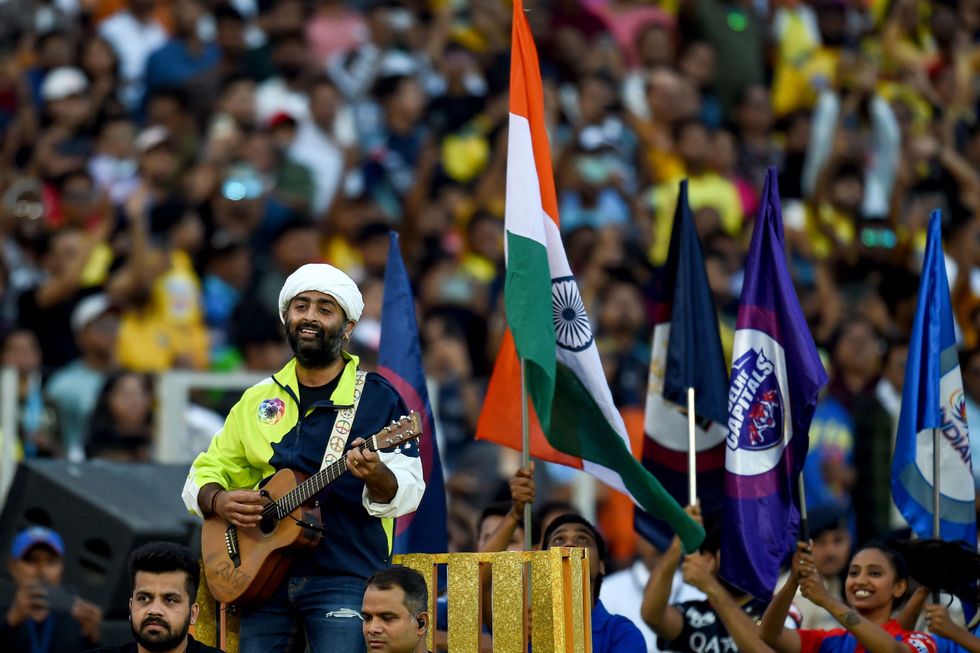 Arijit Singh clicked during a performance Getty Images
Arijit Singh clicked during a performance Getty Images 
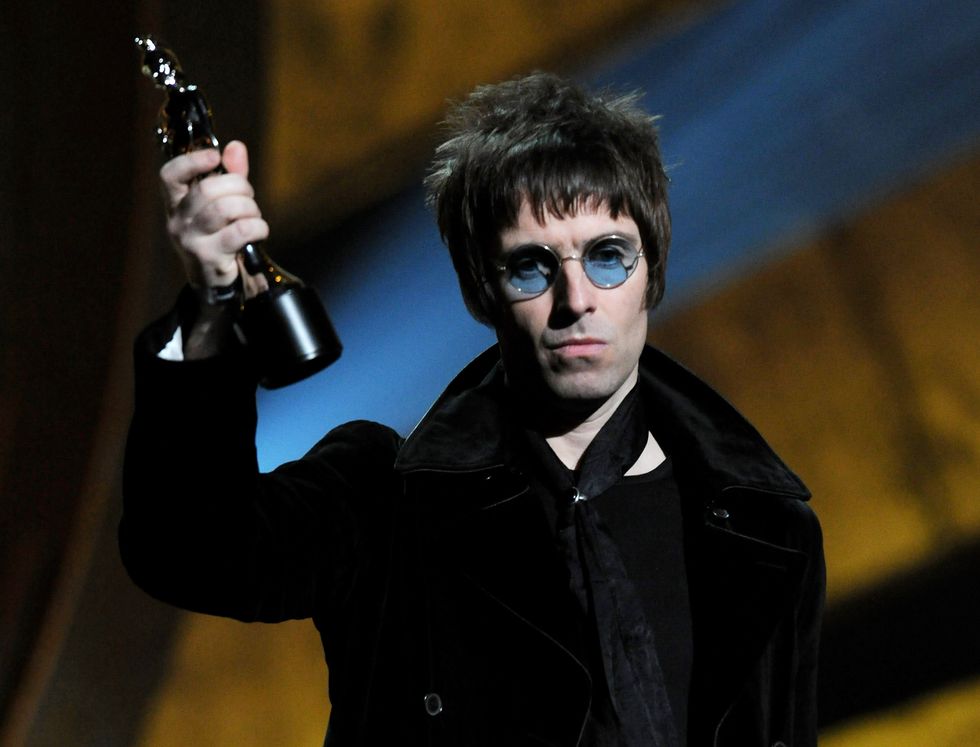 Liam Gallagher accepts Oasis' award for 'Best Album of 30 Years' Getty Images
Liam Gallagher accepts Oasis' award for 'Best Album of 30 Years' Getty Images  Liam Gallagher plays to a sell out crowd at the Universal AmphitheatreGetty Images
Liam Gallagher plays to a sell out crowd at the Universal AmphitheatreGetty Images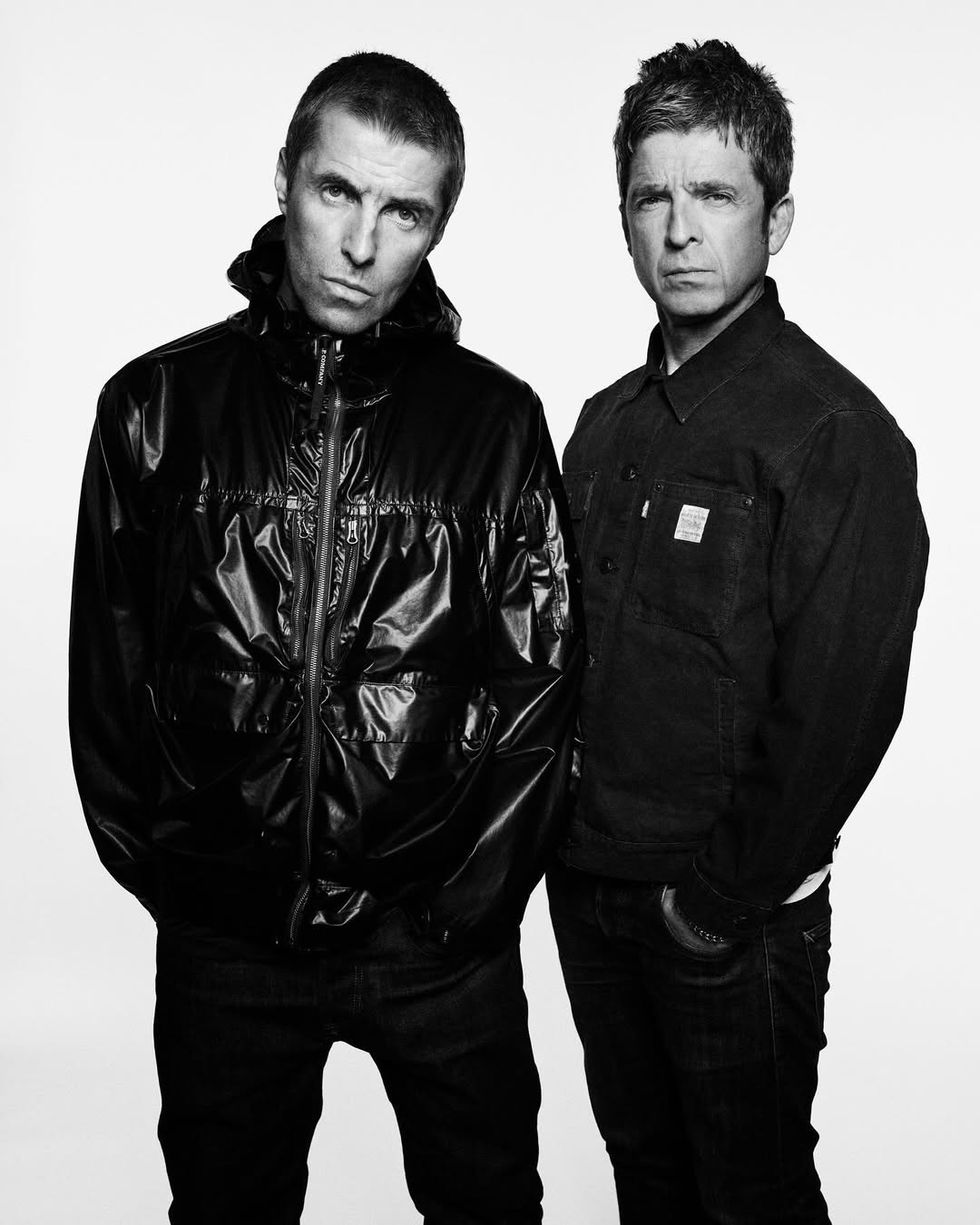 Liam and Noel Gallagher perform together in Cardiff for the first time since 2009 Instagram/oasis
Liam and Noel Gallagher perform together in Cardiff for the first time since 2009 Instagram/oasis 
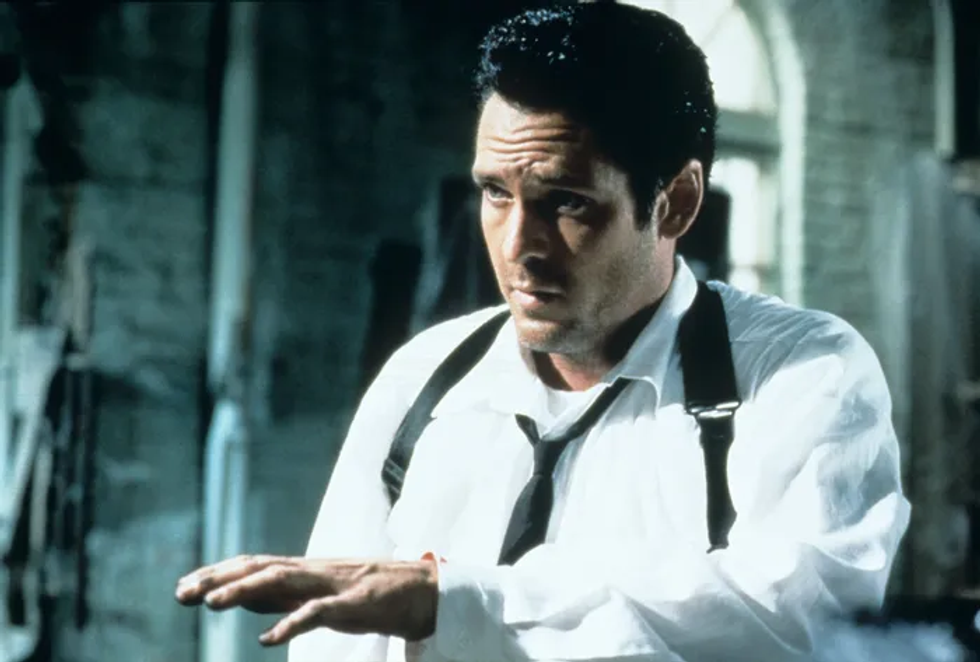 Reservoir Dogs
Reservoir Dogs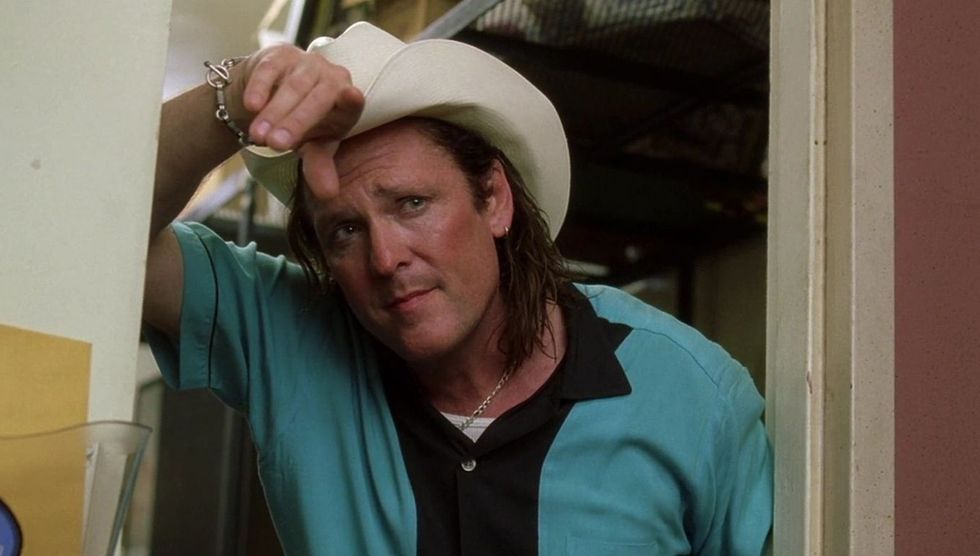 Michael Madsen as Budd aka SidewinderIMDB
Michael Madsen as Budd aka SidewinderIMDB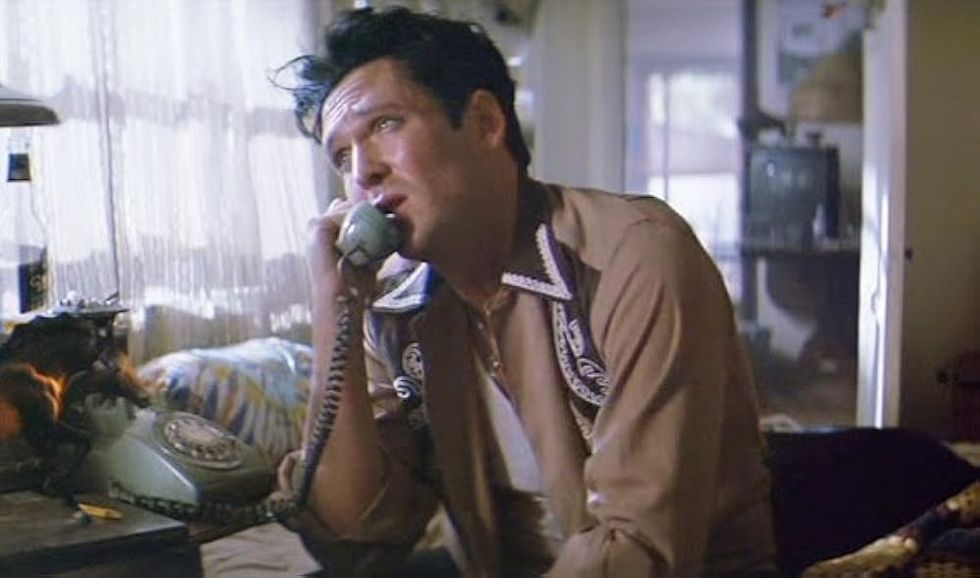 Thelma & LouiseIMDB
Thelma & LouiseIMDB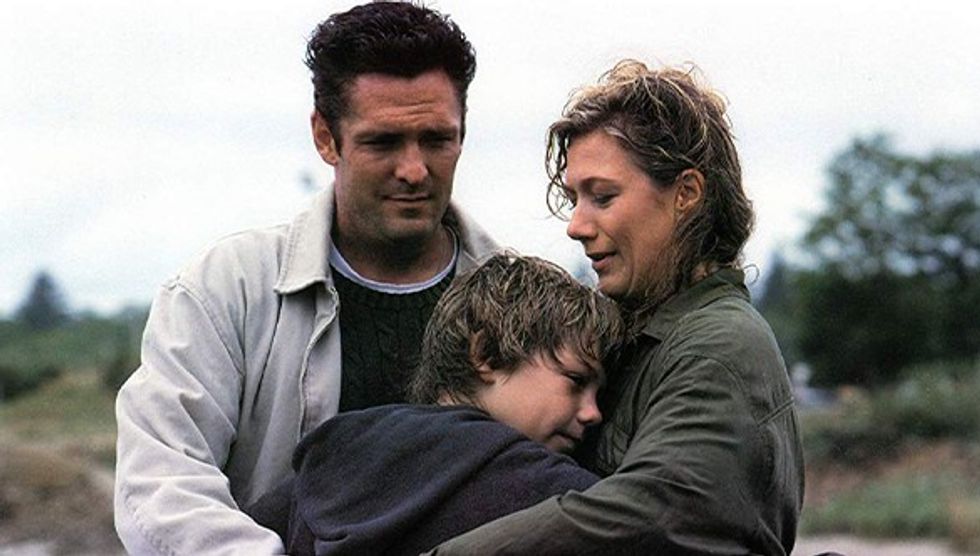 Free WillyIMDB
Free WillyIMDB 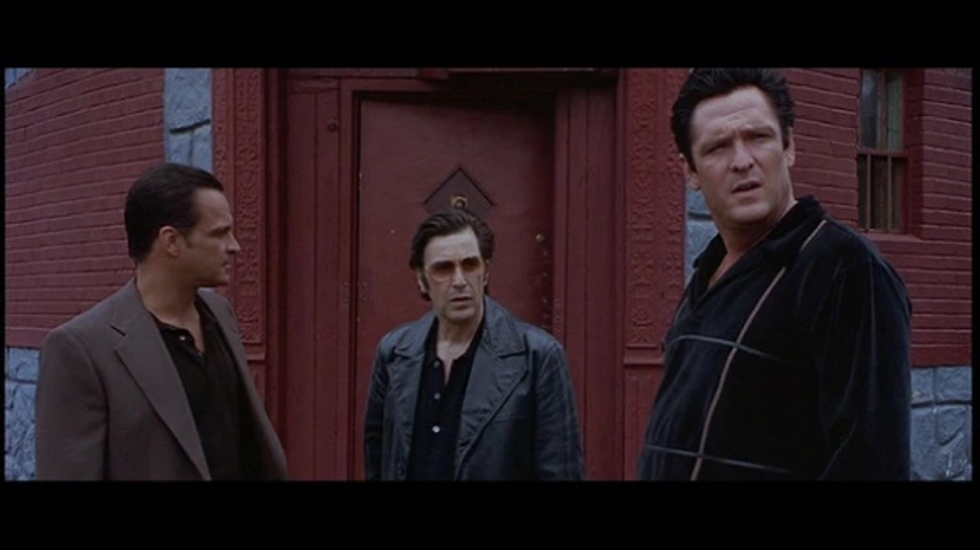 Donnie BrascoAlex on Film
Donnie BrascoAlex on Film 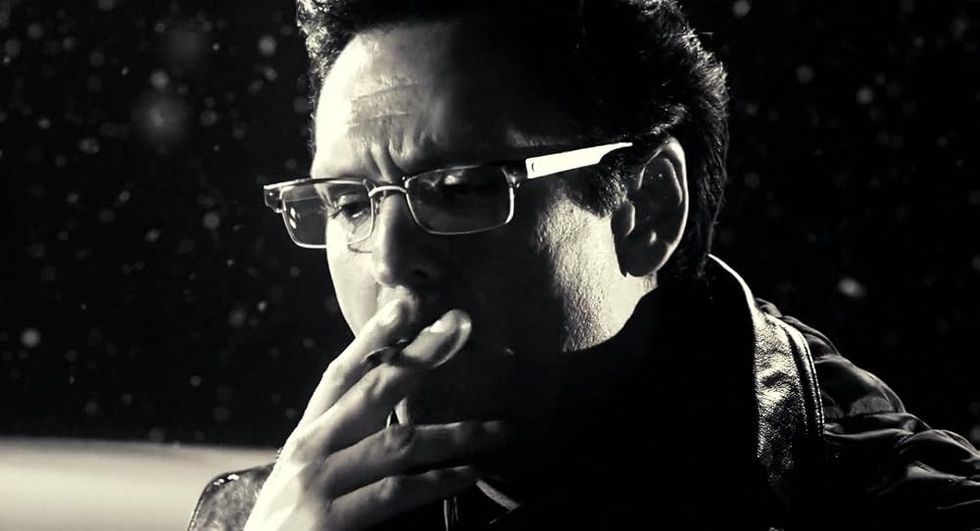 Sin CityIMDB
Sin CityIMDB 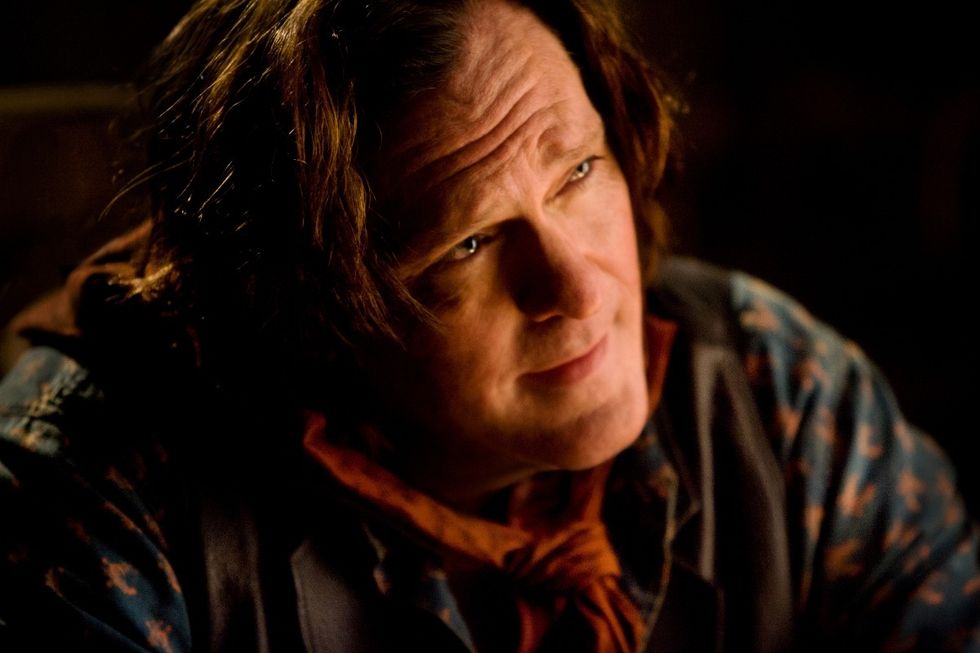 The Hateful Eight IMDB
The Hateful Eight IMDB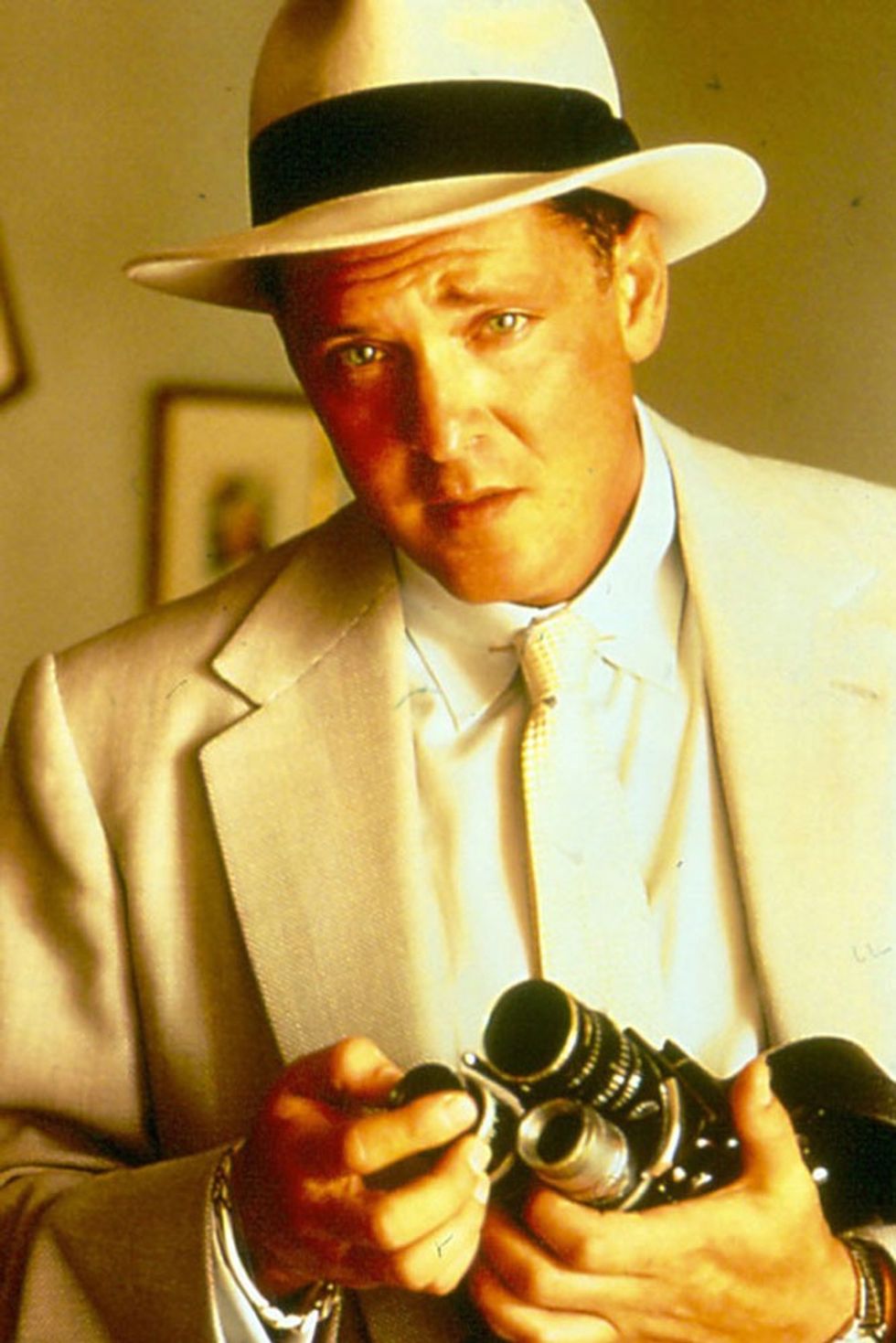 Mulholland FallsVirtual History
Mulholland FallsVirtual History 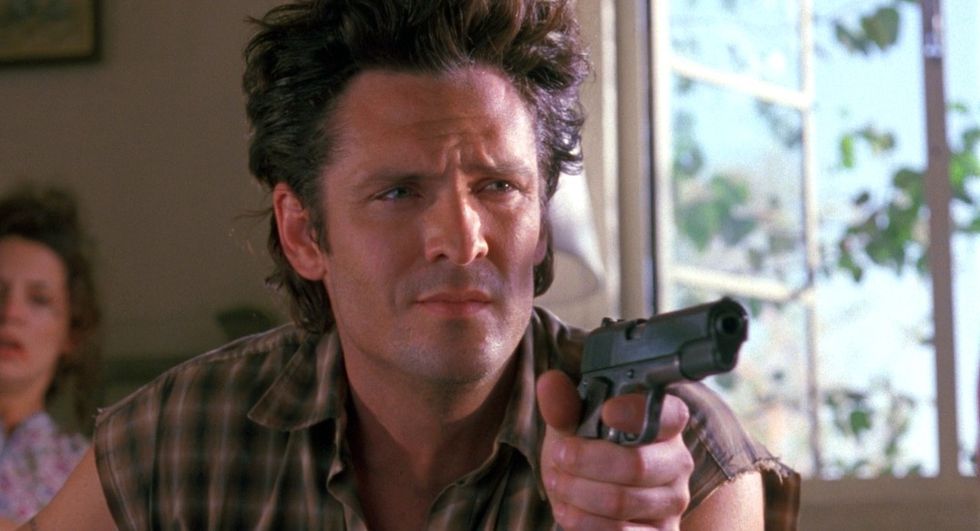 Kill Me Again
Kill Me Again 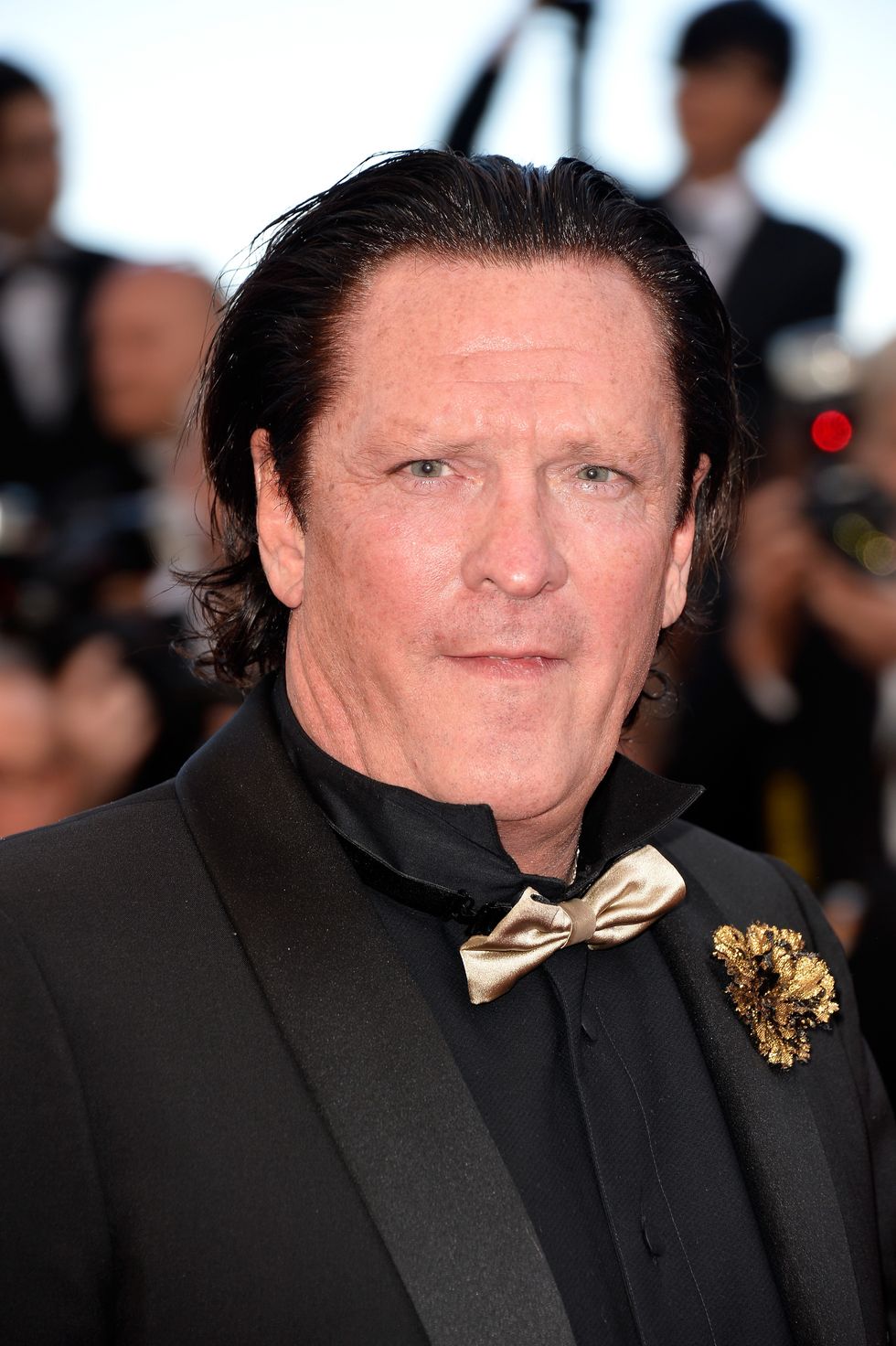 Michael Madsen attends the Closing Ceremony and Fistful of Dollars Screening Getty Images
Michael Madsen attends the Closing Ceremony and Fistful of Dollars Screening Getty Images 
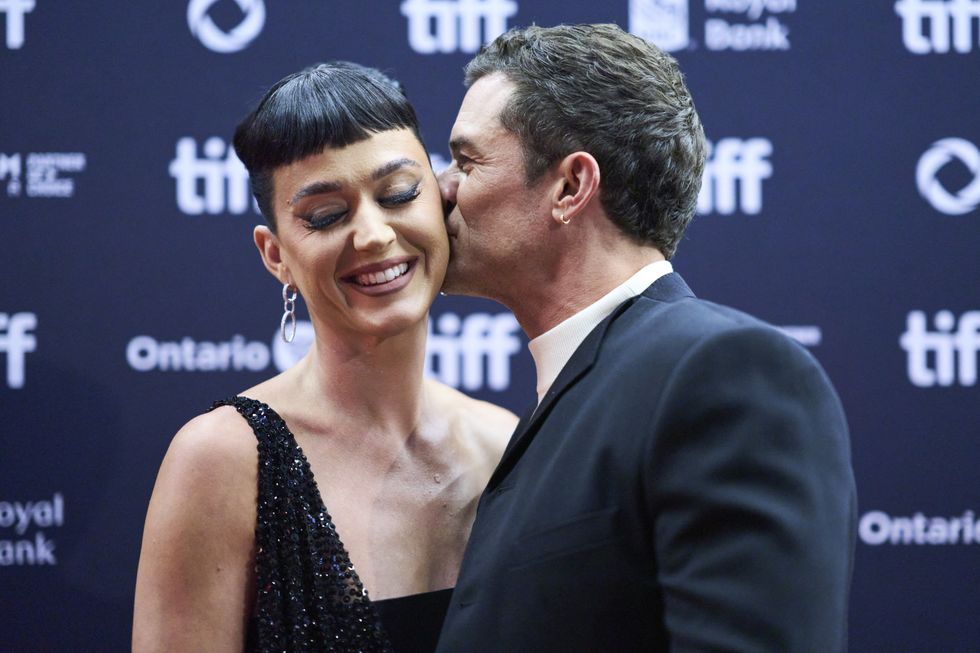 Katy Perry Orlando Bloom Choose Co Parenting Future After Nine YearsGetty Images
Katy Perry Orlando Bloom Choose Co Parenting Future After Nine YearsGetty Images 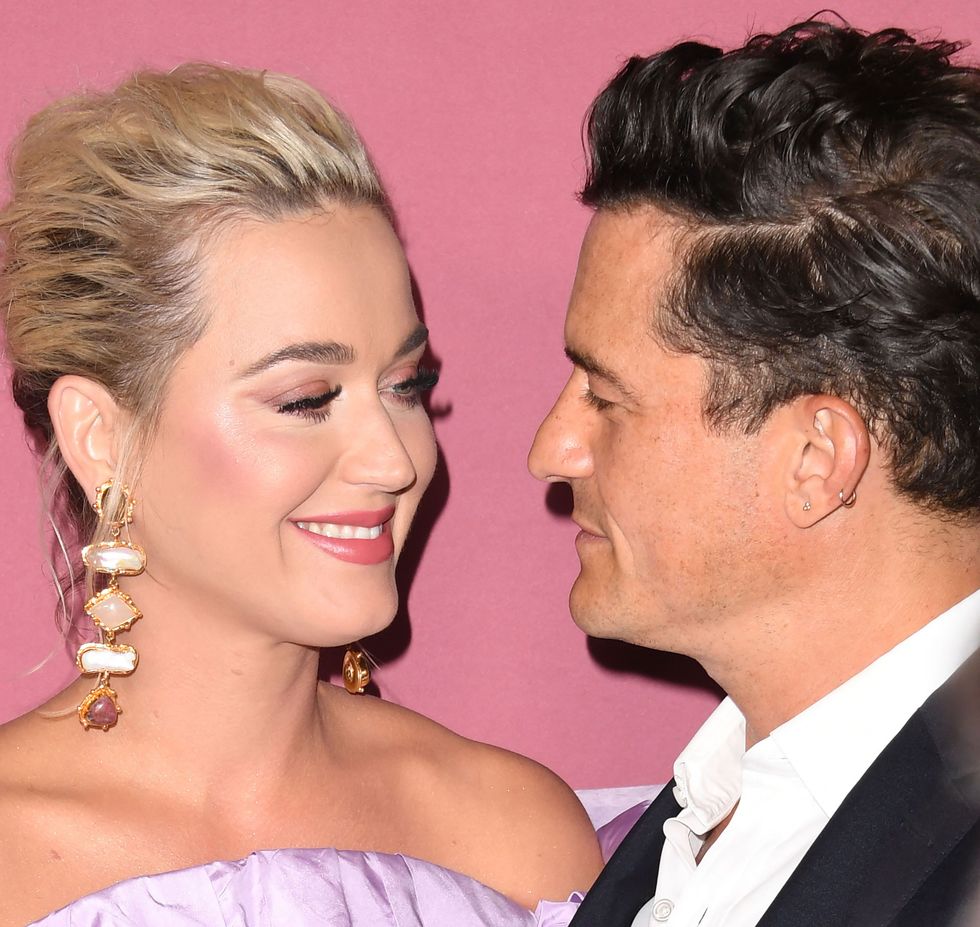 Katy Perry and Orlando Bloom focus on raising their daughter with love and respect Getty Images
Katy Perry and Orlando Bloom focus on raising their daughter with love and respect Getty Images 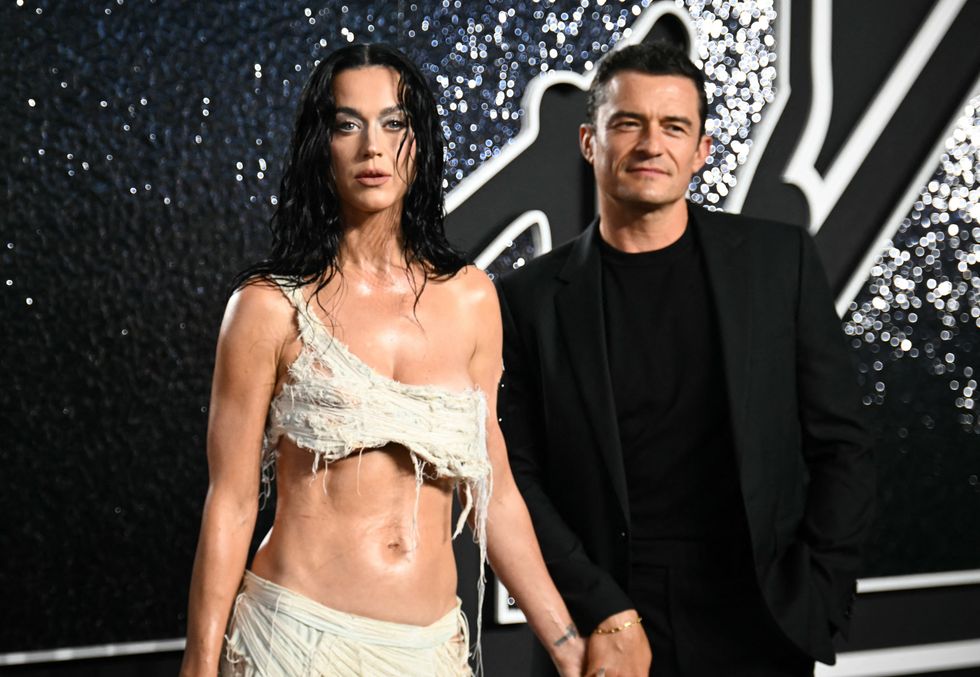 Katy Perry and Orlando Bloom end their long running romance and plan to raise their daughter together as a family
Katy Perry and Orlando Bloom end their long running romance and plan to raise their daughter together as a family